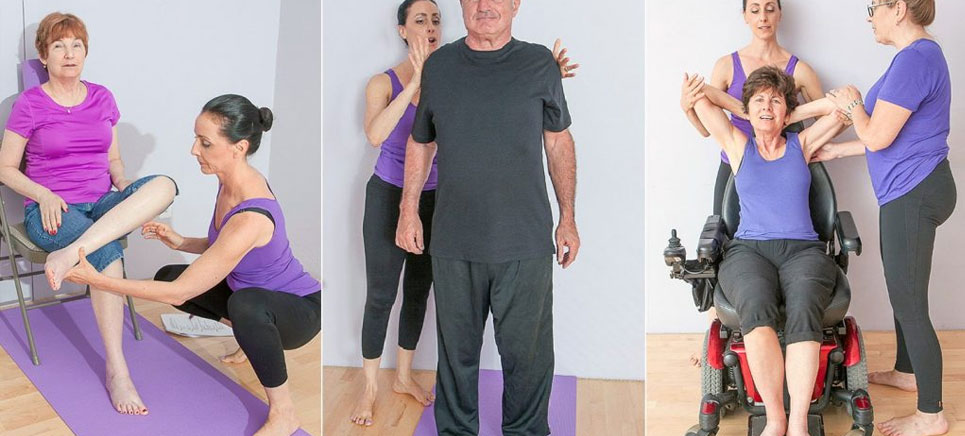Before we talk about Adaptive Yoga, let us first make sure we understand its base – the Yoga. It is important to understand yoga because most of us tend to see it as a set of some physical exercise and this is the reason people with limited mobility generally believe that they cannot practice yoga. In this article, we will be clearing basic myths about yoga and then we will talk about adaptive yoga and its benefits, especially for elderly people and people with disabilities.
What is Yoga?
Contrary to general belief, Yoga is not a set of physical exercises. It is a Hindu philosophy, a discipline that aims at uniting the self (mind, body and soul) with the spirit of the universe. Traditional yoga practice included controlled breathing, asanas (posture), chants and meditation.
Like any other knowledge, the practice of yoga underwent several changes and adaptations with the passing time. All parts of the world practice yoga with slight differences in the approach. While chants, meditations and spirituality has been retained in India, the western world has mostly accepted asanas or the posture-based exercises.
Pranayam, a part of yoga that basically deals with controlled breathing, too has gained popularity all over the world due to its immense physical and mental health benefits. This means you do not need to be physically active or have a certain degree of mobility… you can practice yoga if you can breathe.
What is Adaptive Yoga?
Comparatively, the concept of Adaptive Yoga is of very recent origin. As discussed earlier, the western world accepted yoga simply as a posture-based practice. Obviously, not everybody can practice those postures. Some of them even require a very high degree of flexibility, physical strength and stamina.
In order to include aged people and those with some disabilities in the practice of yoga, those postures were reintroduced with some variations to meet the needs of people with different levels of body movement. These reintroduced yoga poses are now collectively called ‘Adaptive Yoga’. These postures are meant to be inclusive and hence people are free to adapt the postures according to their physical abilities.

Benefits of Adaptive Yoga
- You can practice Yoga, no matter what is the level of your physical abilities. Whether you have arthritis, multiple sclerosis, spinal cord injury or even quadriplegia, you can practice yoga. Adaptive yoga gives you the freedom to understand the practice and adapt it according to your abilities.
- Adaptive yoga aims at empowerment rather than perfection. Unlike other physical exercise classes, Adaptive yoga is never about one-size-fits-all poses. Instead of forcing yourself, you can try to do the movements as much you are able to do without hurting your body.
- Yoga is an inward journey… a journey towards your truest self. It is not simply physical training. It helps you form a deeper sense of connection with yourself thus promoting self-acceptance.
- Adaptive yoga is a path to self-awareness. You learn about yourself and your strengths. It helps you learn about your abilities that have not been impeded by disability.
- While deep breathing practices help in relaxation, physical postures can make you stronger, build your flexibility, improve balance and help with fatigue. Adaptive yoga can also alleviate chronic pains and release muscle tension. Thus, Adaptive Yoga can help you stay at your best physical capacities.
- Practicing yoga helps you feel healthier and more energized the whole day. It makes you ready to take the challenges of life with a calm and composed mind.
Use the citation below to add this article to your bibliography
"Adaptive Yoga: Origin, Meaning and Benefits." Wecapable.com. Web. April 19, 2025. <https://wecapable.com/adaptive-yoga-origin-meaning-benefits/>
Wecapable.com, "Adaptive Yoga: Origin, Meaning and Benefits." Accessed April 19, 2025. https://wecapable.com/adaptive-yoga-origin-meaning-benefits/
"Adaptive Yoga: Origin, Meaning and Benefits." (n.d.). Wecapable.com. Retrieved April 19, 2025 from https://wecapable.com/adaptive-yoga-origin-meaning-benefits/

Leave a Reply